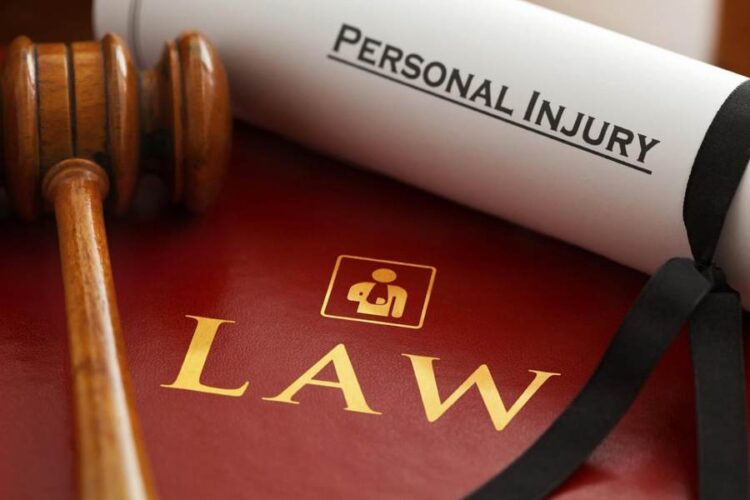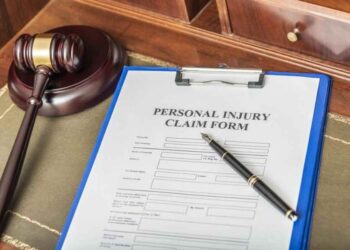A personal injury case can be one of the most stressful experiences of your life. Dealing with physical pain, emotional distress, and financial uncertainty while navigating the complexities of legal proceedings is overwhelming for anyone. In these challenging times, it’s easy to make mistakes that could jeopardize your chances of receiving fair compensation.
Unfortunately, even minor missteps can significantly weaken your case or limit your ability to recover damages. Understanding the common pitfalls and how to avoid them is critical if you want to protect your rights and achieve the best possible outcome. Here are six mistakes you should steer clear of when handling a personal injury case.
Delaying Medical Treatment After the Incident
After an accident, your first priority should be your health. Failing to seek immediate medical attention can not only endanger your well-being but also harm your legal claim. Insurance companies often argue that gaps in treatment indicate that the injury wasn’t serious or wasn’t caused by the incident.
Prompt medical evaluation establishes a clear link between the accident and your injuries. It also ensures that internal injuries, which may not present symptoms right away, are diagnosed and treated early. Consistent follow-up appointments demonstrate that you are taking your recovery seriously, which strengthens your credibility in court or settlement negotiations.
Providing a Recorded Statement to Insurance Adjusters
It’s common for insurance adjusters to contact you soon after an accident and request a recorded statement. While they may sound sympathetic, remember that they work for the insurance company, not for you. Their goal is often to gather information that can be used to minimize or deny your claim.
You are under no legal obligation to provide a recorded statement without consulting an attorney first. Even seemingly harmless remarks can be twisted or taken out of context. Always defer detailed conversations with insurance companies until you have professional legal guidance to protect your interests.
Settling Too Quickly Without Understanding the Full Extent of Damages
In the aftermath of an accident, you may feel pressure to resolve the matter quickly and move on. Insurance companies sometimes offer fast settlements that seem tempting, especially if you are facing mounting medical bills and lost income.
However, accepting a settlement too early can be a costly mistake. Once you sign, you typically waive your right to pursue additional compensation, even if future complications arise. A comprehensive evaluation of your medical needs, future care requirements, and long-term impacts should be completed before agreeing to any settlement terms. This ensures you receive compensation that truly covers all your losses.
Failing to Document Evidence Thoroughly
Solid evidence forms the foundation of any successful personal injury case. Relying solely on memory or minimal documentation is a serious error. Right after the accident, if possible, gather as much evidence as you can: photos of the scene, your injuries, vehicle damage, weather conditions, and any contributing hazards.
Witness statements, police reports, and medical records should also be preserved. If handling these tasks feels overwhelming, working with a Houston personal injury attorney can ensure that critical evidence is collected and preserved appropriately, bolstering your case from the outset. Detailed records create a compelling narrative that supports your version of events.
Ignoring Doctor’s Orders and Medical Advice
Following your healthcare provider’s treatment plan is essential, not only for your recovery but also for your legal case. Ignoring medical advice or missing appointments can be used against you, suggesting that your injuries aren’t as serious as you claim.
Insurance companies and opposing counsel often review medical records to identify inconsistencies or signs of noncompliance. If you skip therapy sessions, decline recommended surgeries, or engage in activities that contradict your stated injuries, you risk undermining your credibility. Diligent adherence to your treatment plan demonstrates that you are committed to your recovery and deserve fair compensation.
Posting About the Accident on Social Media
It’s second nature to share life events online. However, posting about your accident, injuries, or case developments on social media can be disastrous. Insurance companies and defense attorneys actively monitor social media for posts, photos, or comments that could be used to dispute your claims.
Even innocent posts, such as photos from a family gathering or comments about feeling better today, can be twisted to suggest you are exaggerating your injuries. The best practice is to limit social media activity entirely while your case is active, and certainly avoid discussing any aspect of the incident or your health status publicly.
Dealing with a personal injury case is a delicate and often complicated process. By avoiding these common mistakes, you can protect your legal rights, strengthen your claim, and maximize your chances of obtaining the compensation you deserve. Careful attention to your medical care, legal communications, and documentation efforts will position you for success as you navigate the road to recovery and justice.










